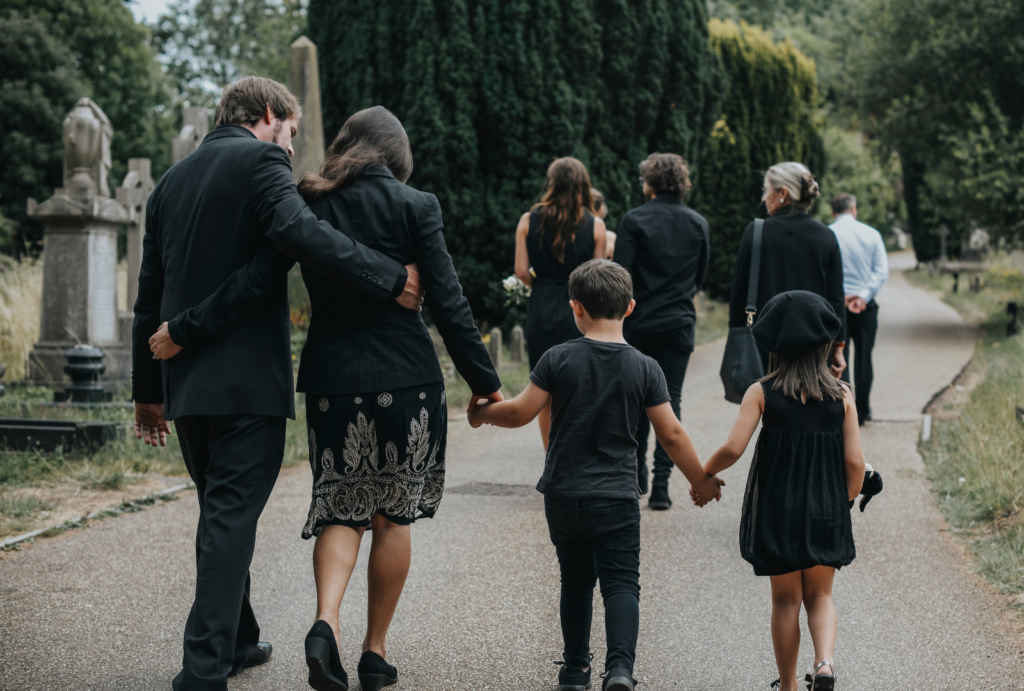Why Is A Funeral Service Important?

Why Have a Funeral Service?
Losing a loved one is one of the hardest things we go through in life. During such an emotional and overwhelming time, the thought of organising a funeral service can feel daunting. But Why Have A Funeral Service?
Having a funeral is a deeply meaningful way to say goodbye, honour a loved one’s memory, and begin the process of healing. It’s more than just a tradition; it’s an important step in navigating grief and finding closure. Let’s explore why funeral services matter, what they involve, and how to plan one that reflects the life and legacy of your loved one.
Why a Funeral Service Is Important
A funeral service provides a time and place to come together, to reflect, and to remember. Here are some of the main reasons why holding a funeral service can be so significant:
Honouring Their Memory
Funerals are a way to celebrate the life of the person who has passed. They offer an opportunity to share stories, memories, and moments that capture who they were. By honouring their memory, we ensure their life and legacy are not forgotten.Finding Closure
Grieving is a process, and saying goodbye is an essential part of it. A funeral creates a structured environment to acknowledge the loss and begin accepting it. This moment of farewell can be incredibly healing.Bringing People Together
Funerals are a gathering of family, friends, and community. They provide a space for shared mourning and support, reminding everyone that they are not alone in their grief.Saying a Final Goodbye
A funeral is often the last chance to say goodbye. Whether it’s through eulogies, rituals, or simply being present, it provides a sense of closure and finality that can help loved ones move forward.

Steps to Plan a Funeral Service
Organising a funeral may feel overwhelming, especially when dealing with grief. Breaking it down into steps can help make the process more manageable. Here’s how to get started:
- Engage a Funeral Director
A funeral director can provide guidance and handle much of the logistics. They’ll assist with arrangements, paperwork, and coordination, making the process less stressful. Choose the Venue
Funeral services can be held in a variety of locations, such as a church, a chapel, a crematorium, or even an outdoor space that held special meaning for your loved one. Choose a venue that feels right and can accommodate the attendees.Decide on Burial, Cremation or The Gentle Way
The decision between burial and cremation is often guided by personal, cultural, or religious beliefs. If your loved one expressed a preference, honouring their wishes is important. If not, discuss with family members to decide what feels best.Plan the Service
A typical funeral service might include eulogies, readings, prayers, hymns, or music. Work with family and friends to decide who will participate and how the service will unfold. Personal touches can make the service even more meaningful.Personalise the Service
Think about how to reflect your loved one’s life and personality. This could include their favourite music, photos, or items that represent their hobbies or passions. Personalisation helps make the service unique and memorable.Inform Attendees
Let people know about the service through invitations, social media, or public notices. Be sure to include details like the date, time, and location.Consider a Wake or Reception
A wake or reception can offer a more informal setting for loved ones to gather, share stories, and connect after the service. It’s a time to remember and support one another.
The Role of A Funeral Service
Roles play an important role in funeral services, offering comfort and meaning. Common rituals include:
Eulogies: Speeches that celebrate the life of the deceased and share memories.
Readings: Poems, scriptures, or other texts that provide inspiration and solace.
Music: Songs or hymns that resonate with the family or reflect the loved one’s personality.
Symbolic Acts: Acts like lighting candles, planting trees, or releasing balloons can serve as powerful tributes. (balloons can sometimes not be released due to location of funeral service, see your funeral director).
How Funerals Help Us Heal
Grief is complex, and finding ways to cope is essential. Funeral services offer several benefits that support the healing process:
Acknowledging the Loss: A funeral helps us face the reality of the loss, which is a crucial step in grieving.
Shared Mourning: Being with others who are also grieving fosters a sense of connection and mutual support.
Honouring the Deceased: Celebrating their life reminds us of the joy and love they brought into the world.
Acceptance and Healing: The rituals and structure of a funeral create space for acceptance, helping us move forward.
Addressing Common Concerns
Some people may hesitate to organise a funeral for various reasons. Here are a few common concerns and how to address them:
Cost: Funerals can be tailored to fit different budgets. Simple arrangements can be just as meaningful as elaborate ones.
Logistics: Funeral directors and supportive family members can help manage the details, making the process less overwhelming.
Emotional Strain: While funerals can be emotionally challenging, they often provide long-term comfort and healing.
Alternatives to Traditional Funerals
If a traditional funeral doesn’t feel right, there are alternatives to consider:
Memorial Services: These are held after the burial or cremation and focus solely on celebrating the life of the deceased.
Celebrations of Life: These are often more informal and joyful, highlighting the positive aspects of the person’s life.
Private Gatherings: Intimate ceremonies with close family and friends can offer a quieter, more personal farewell.
Virtual Services: Online services allow distant loved ones to participate and share their grief and memories.
So What’s The Answer?
A funeral service is more than just a ceremony—it’s an essential part of saying goodbye. It’s a chance to honour your loved one’s life, find comfort in shared memories, and begin to heal. Whether you choose a traditional service, a celebration of life, or something entirely unique, the most important thing is to create a space where love, respect, and remembrance take centre stage.
In the end, a meaningful goodbye is a gift for everyone involved. It’s a moment to cherish the past, embrace the present, and find strength for the journey ahead.
